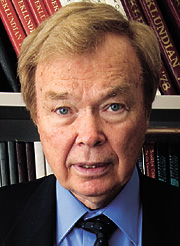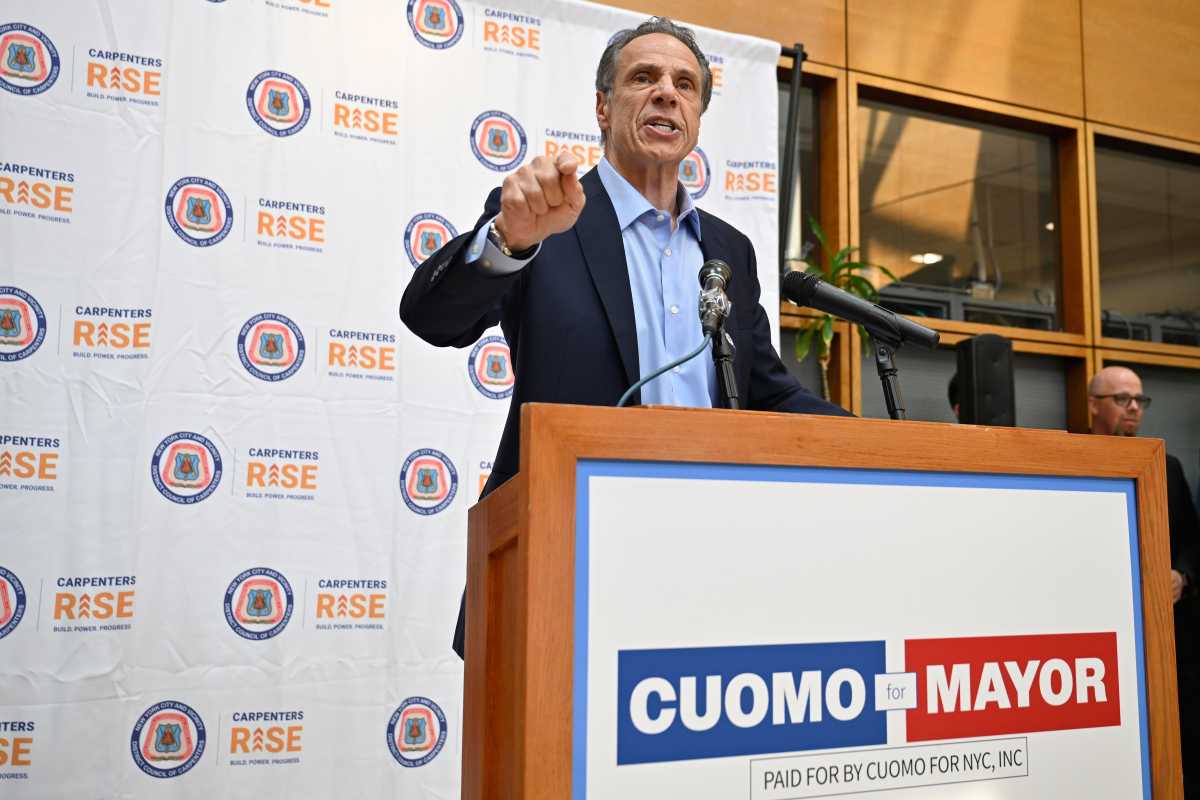Nowadays, the city hands out condoms at your corner coffee bar. But four decades years ago, it was illegal for single people to have birth control. That changed, of course, thanks to Bill Baird, a Brooklyn College graduate and one-man army against repressive abortion and birth control laws. His crusade culminated in the landmark Supreme Court ruling in Baird v. Eisenstadt (1972), which legalized the use of birth control by unmarried people, paving the way for sound family planning (and the Sexual Revolution that we’ve heard so much about). To commemorate the 35th anniversary of the High Court ruling on March 22, Baird dropped by his old alma mater and checked in with our editor, Gersh Kuntzman.
Q: So, the students must have been really excited to see you, the man who did so much to ensure their right to get condoms.
A: Are you kidding? Most people have no idea that condoms and diaphragms were illegal so recently. And this was the 35th anniversary of that case, yet most people would look at you crazy if you told them that possessing birth control was a felony!
Q: Until you came around, of course. What did you do?
A: In 1967, I was working for a company that made contraceptive foam. I went to Boston, where just showing a diaphragm got you a five-year jail term. So I did that and also gave a package of foam to an unmarried 19-year-old woman. They threw me in jail — a felon! I was in the Charles Street jail for three months. There were rats in the cell, bugs in the food, the threat of rape, forcible body searches. Finally, the Supreme Court heard me. They said if the right of privacy means anything, it is the right of individuals to be able to choose when to bear a child.
Q: But you had allies in the fight, no?
A: Are you kidding? I went to Planned Parenthood and asked them to take a position that abortion is a woman’s right and they said no. They said abortion took the life of a child. And they opposed birth control for unmarried people, too.
Q: Well, naturally. The notion of a “planned” parenthood was an alien concept in such a religious country as ours.
A: But I’m religious, too! The difference between the Religious Right and the Religious Left is that we on the Left don’t want to impose our will on anyone. We don’t say you have to have an abortion. But we want it to be available. Very few people have the courage to stand up to people who say they’re more moral than the rest of us.
Q: Not to sound like a Devil’s advocate, but what’s the big deal? We have legal abortion and the right to buy contraceptives. You won.
A: But the public is asleep! People can’t see that the Right wants to take away the right to privacy that was guaranteed in Baird v. Eisenstadt and Roe v. Wade. During their confirmation hearings both [John] Roberts and [Samuel] Alito said they support the privacy right guaranteed in Baird v. Eisenstadt. But [Clarence] Thomas said the same thing in 1991 — but once he got on the Court, he voted against the right to privacy. You’ll see, Roberts and Alito will do the same.
Q: Not if you’re around.
A: I’ll keep fighting, you can be sure, no matter how many death threats.

























